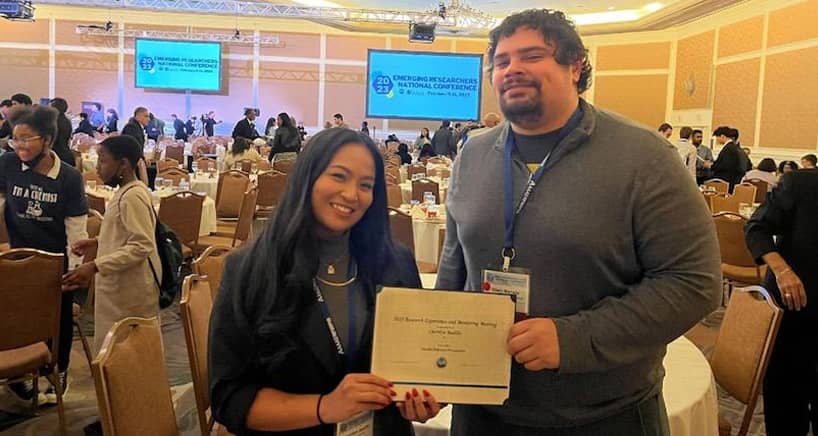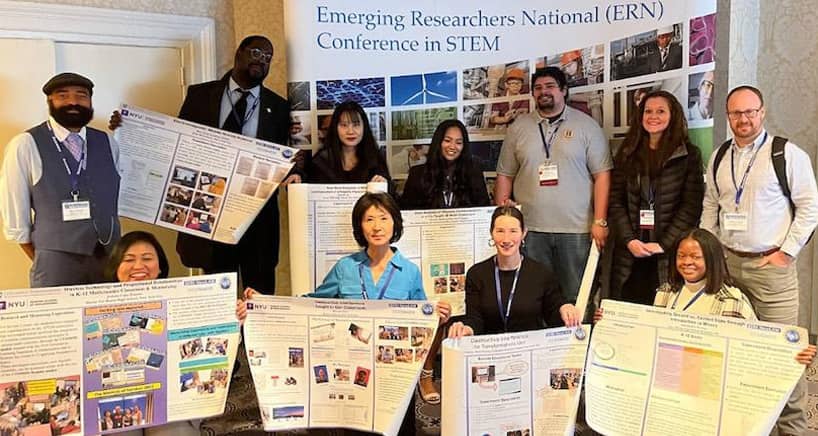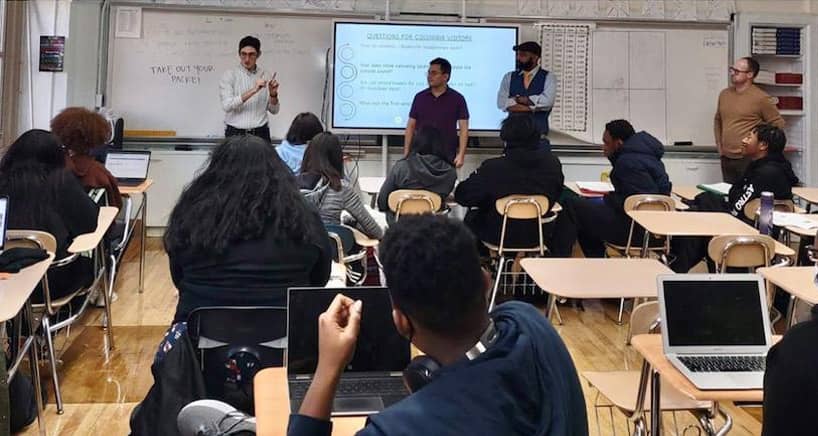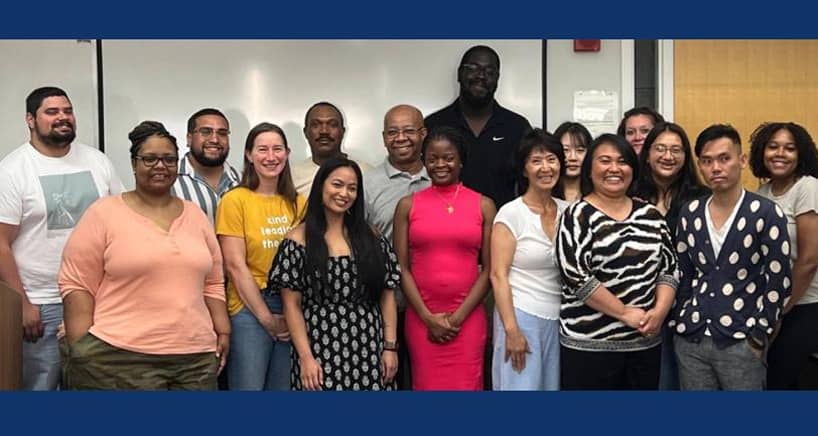Teachers shared success using the COSMOS Education Toolkit with students to run experiments on the testbed in Columbia’s Morningside Heights campus.

Teachers participating in the 2022 Cohort of the COSMOS-NewLAW Research Experience and Mentoring for Teachers (REM/RET) program won top awards at the annual Emerging Researchers National (ERN) Conference in STEM on February 9-11 in Washington, D.C.
The ERN Conference is organized and supported by the American Association for the Advancement of Science (AAAS) and the National Science Foundation (NSF) and brings together over a thousand participants from all over the country. During the conference, the NSF Research Experience for Mentors (REM) program held a satellite meeting where grantees from around the country met to share updates about their projects and best practices.

Nine NYC teachers from the 15-teacher 2022 cohort presented their work from this past summer’s COSMOS NewLAW program, jointly organized by Columbia Engineering, Columbia Data Science Institute, and NYU’s Tandon School of Engineering. Two of the teachers won top honors for their presentations: Cherrilyn Badilla, from The Clinton School in Manhattan, won first place, and Edwin Marrero, from Hamilton Grange Middle School in Harlem, won second place.
During the first week of the COSMOS NewLAW program, the teachers went through a basic training about the fundamentals of wireless technologies, which was presented collaboratively by teacher peer-mentors, researchers, and educational experts leading the project. Next, the teachers, together with the research team, jointly learned and enhanced innovative real-world experiments and lessons that were organized as automated and repeatable labs tailored to their curriculum. The labs were executed on the COSMOS Education Toolkit, which is able to run labs in the COSMOS testbed and allows teachers and students to run the experiments using a web browser on any PC. Via the browser, students are able to interact with the testbed located in West Harlem, near the Columbia Morningside campus.

Cherrilyn Badilla, who teaches students in special education, explained why she joined the program. “My reason for joining the COSMOS-NewLAW program was twofold. On the one hand, I’ve always been interested in learning about engineering and STEM. On the other hand, my goal as a special education teacher is to create meaningful and engaging STEM lessons that all my students can access. The result was just that–my students were excited to learn more about technology as it applies to them on a day-to-day basis, and I simultaneously gained more knowledge about wireless communication.”
“My students loved the lessons developed from the experiments in the remote toolkit,” said teacher Edwin Marrero when asked how the lessons developed during the summer translated to the classroom. “Students love to utilize tech, and it gave them a way to explore topics they wouldn’t often be exposed to while still connecting to the skills that need to be taught; it was enjoyable for them. My COSMOS-NewLAW lesson left many students asking, ‘When is the next one?!’ And I have also gotten messages from parents about their children being excited about the lessons as well. That level of excitement doesn’t often come when teaching mathematics. I hope that these experiences will push our students to pursue STEM-related fields.”
Dr. Alias Smith, a Program Director at the NSF’s Office of Emerging Frontiers & Multidisciplinary Activities, shared his perspective on why the program is meaningful: “A program like COSMOS offers a unique opportunity to learn about cutting-edge research with real-world relevance, develop educational toolkits to use in the classroom, and receive mentoring to aid in applying newly developed tools for teaching. Teachers who participate in programs like COSMOS can enhance their teaching and classroom impact while directly contributing novel quality educational tools to the national community.”

“Since 2018, the COSMOS-NewLAW Research Experience and Mentoring for Teachers (REM/RET) program has been an excellent collaboration between NYU Tandon and Columbia,” said Professor of Electrical Engineering Gil Zussman “This past summer, we focused on transitioning the education toolkit to a virtual setting where educational labs can be executed remotely on the COSMOS testbed. We were thrilled to see our teachers have so much success with the program and to be recognized at the conference. We will soon start recruiting teachers for the Summer 2023 cohort and especially look forward to expanding the program in collaboration with the NSF Engineering Research Center for Smart Streetscapes (CS3).”
The February meeting was the first time the ERN Conference had met in-person since the pandemic. NSF’s Dr. Kay-Marie Lamar, who led the organization of the meeting, shared the following, “The REM Grantees Meeting has been held virtually the past couple of years due to the pandemic, so it was exciting to have the opportunity to organize an in-person meeting this year. It was so fun to see the REM research participants standing up and doing improv exercises, interacting with one another, and presenting their research projects during one of the REM workshops – ‘The Improv Mindset for Public Speaking and Presenting.’ My hope is that the meeting helped foster connections between participants leading to an ongoing dialogue and support system for those interested in engineering research and broadening participation in this field.”
About the COSMOS-NewLAW Program
The COMOS-NewLAW program is co-organized by Kostas Chounos, Dimitris Dallas, Ben Esner, Manos Maroulis (NYU Tandon), Kristian Breton and Trey Greene (Columbia Engineering), along with Professors Thanasis Korakis (NYU Tandon), Zoran Kostic, Harish Krishnaswamy, and Gil Zussman (Columbia Electrical Engineering and Data Science Institute). It is supported in part by REM supplement to NSF award EFMA-1641100 (NewLAW EFRI), RET supplements to NSF award CNS-1827923 (PAWR COSMOS), and the Columbia Data Science Institute.
Details about the summer 2023 program will be available in the COSMOS, Columbia Engineering Outreach, and NYU K12 STEM websites.
